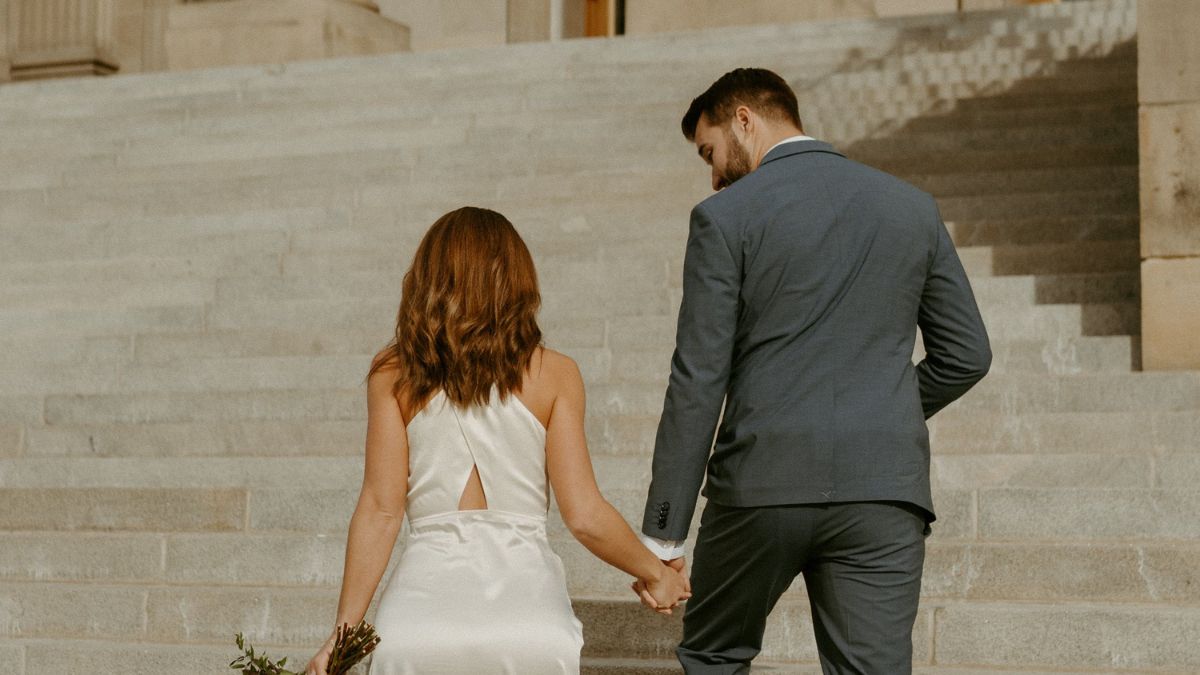Courthouse weddings offer a simple and cost-effective alternative to traditional ceremonies, but what exactly do you need to get married at the courthouse? Whether you’re planning an intimate elopement or a budget-friendly celebration, understanding the requirements for a courthouse wedding is essential.
In this article, we’ll explore the key essentials you’ll need to ensure your courthouse wedding goes off without a hitch.
Marriage License:
The first and most crucial requirement for getting married at the courthouse is a marriage license. This legal document authorises the marriage and must be obtained before the wedding ceremony takes place. Requirements for obtaining a marriage license vary by jurisdiction, so it’s essential to research the specific guidelines in your area. Generally, you’ll need to provide identification, proof of age, and pay a fee to obtain your marriage license.
Identification:
When applying for a marriage license and getting married at the courthouse, you’ll need to present valid identification. This typically includes government-issued photo IDs such as a driver’s license, passport, or state ID card. Some courthouses may also require additional documentation, such as a birth certificate or social security card, so be sure to check the requirements beforehand.
Officiant:
Courthouse weddings are often officiated by a judge, magistrate, or justice of the peace. In some cases, you may be allowed to bring your own officiant, such as a friend or family member ordained to perform weddings. It’s essential to confirm the availability of an officiant and any associated fees when scheduling your courthouse wedding.
Witnesses:
Many jurisdictions require witnesses to be present during the wedding ceremony to verify the marriage. The number of witnesses required varies depending on the location, so be sure to check the specific requirements in your area. If you don’t have witnesses available, some courthouses may provide witnesses for an additional fee.
Fees:
While courthouse weddings are generally more affordable than traditional ceremonies, there are still some fees involved. These may include the cost of the marriage license, ceremony fees, and any additional services requested, such as photography or venue rental. Be sure to budget accordingly and inquire about all applicable fees when planning your courthouse wedding.
Marriage Certificate:
After the wedding ceremony, you’ll receive a marriage certificate as proof of your marriage. This document is essential for legal purposes, such as changing your name or updating your marital status with government agencies and financial institutions. Make sure to obtain multiple copies of your marriage certificate, as you’ll likely need them for various administrative tasks.
Getting married at the courthouse can be a straightforward and hassle-free way to tie the knot. By understanding the essential requirements, such as obtaining a marriage license, providing identification, arranging for an officiant and witnesses, and budgeting for fees, you can ensure that your courthouse wedding is a smooth and memorable experience. Whether you’re planning a small elopement or a budget-friendly celebration, a courthouse wedding provides a convenient and affordable option for couples looking to say “I do” in a meaningful way.


